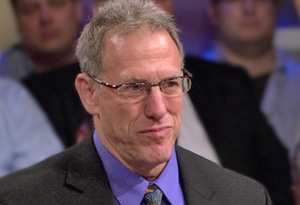Sexual Abuse Survivors' First Steps Toward Healing

Congratulations on having the courage to read about taking your first steps toward healing. Every day, more help is becoming available, and more therapists are being trained every year. However, given that one in six men is sexually abused as a child, and many others are abused and raped as adults, the number of services available to men who have been abused is still grossly inadequate. Visit the online resource center, which has a number of specific websites for male survivors, general websites and some specific websites given the type of abuse or abuser. I encourage you to visit these websites and learn as much as you can.
My hope is that the help that's been available for women in past decades will become just as available for men. It's really essential that men have the resources, the help and the support they need so they can heal just as effectively as women have learned to do.
First Steps for a Man Who's Ready to Talk About His Abuse:
My hope is that the help that's been available for women in past decades will become just as available for men. It's really essential that men have the resources, the help and the support they need so they can heal just as effectively as women have learned to do.
First Steps for a Man Who's Ready to Talk About His Abuse:
- Give yourself a big round of applause daily. It takes a lot of courage to do this, and one step at a time, you absolutely can heal and recover.
- Find somebody to talk to who's safe. That may mean calling a therapist, mental health center or local psychological association. There are many types of trained therapists: psychiatrists, psychologists, social workers, mental health, family, marital and pastoral counselors, as well as trained body workers and self-defense experts who can help. You can go online to find organizations that list therapists who are helpful. Be patient. You deserve to find a therapist who has been trained to work with male survivors. Having experience with women survivors helps, however, men do have unique needs. Some of you may feel safer talking to a male therapist, while others will definitely prefer a woman. What is important is finding a therapist who has the skills and the compassion to help you. If a therapist tells you, "That is the past, let go and focus on the present, as that is all you can change," find a new therapist.
- Attend support groups. The Internet is filled with lots of resources, chat rooms and bulletin boards where you can go and talk to other men and just listen to other men share their stories. This is important because men need a community in order to heal. Remember it's fine to just listen at first and only share a little at a time as you are ready. You will feel safer this way, and your safety is very important as you start and continue to recover.
- Know you're not alone. Know there are other men out there who understand. You're not isolated. There are other people who are going to understand. Remember the 200 men who stood in the Oprah Show audience holding up their childhood pictures on November 5, 2010.
- Take your time. Talking about your abuse is a process, and it's really important that you be very gentle with yourself. Take your time and know this is not a race. We can take our time. We can be compassionate with ourselves. We can learn to be loyal to functionality and disloyal to dysfunction, which means men really have to examine the messages that got planted in their heads by their perpetrators and by usually well-meaning families. Messages like: "You should keep it to yourself. You have to be strong and powerful. You will hurt others if you tell." You can learn to give yourself permission to be vulnerable.
- Be willing to have feelings in order to heal. It's absolutely possible to heal and to fully recover. It just takes time, and it's important to have that hope and to keep reaching out for as much support as you need.
- Learn to breathe slowly and deeply. There are many books on mindfulness practices, which will help you feel more in control of your body, mind and soul. Remember, you cannot be tense and relaxed at the same time: It is physiologically impossible.
- Ask for help, and then ask for support. Men learn they shouldn't need help; as survivors, we didn't get the help we needed. Now, it is essential to have help from people who've been on the recovery path and have wisdom to share.
- Practice daily affirmations. These affirmations are designed to help you practice being disloyal to the dysfunctional messages you may have learned growing up. Say them out loud, preferably looking at yourself in a mirror, or say them to someone who cares about you as you look them in the eyes. Be mindful of whatever feelings arise as you say the affirmation; any feelings you have are okay, even if you cry. Every tear you cry validates your worth and the worth of the boy inside you.
Watch 200 men stand together against sexual abuse
Sexual abuse resource center
The aftermath of sexual abuse
Male survivors share their stories



